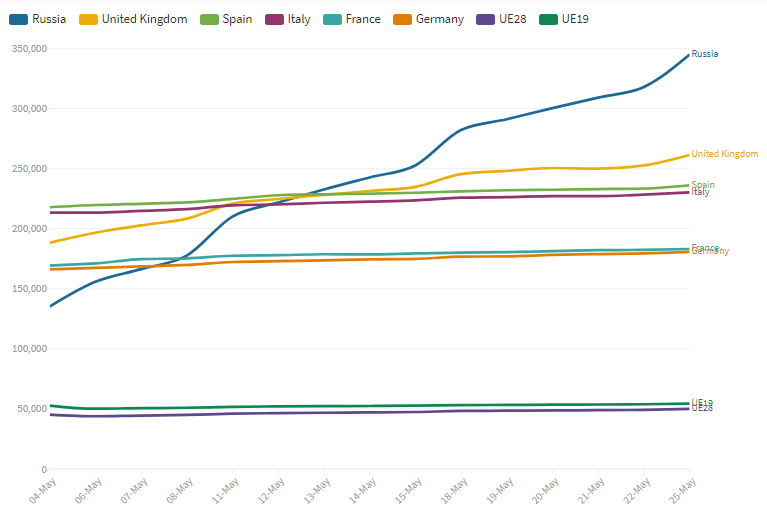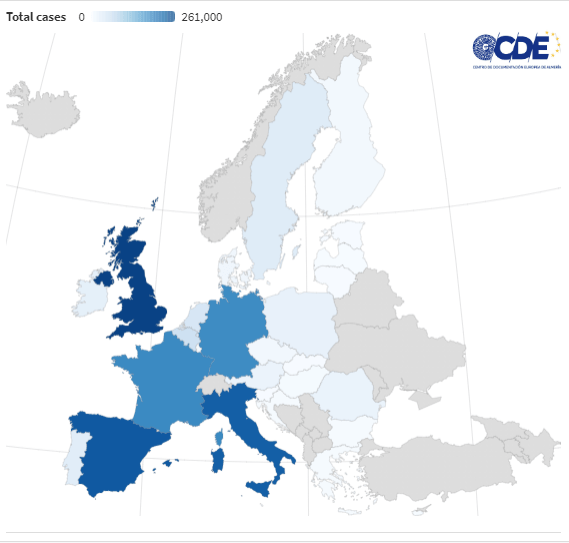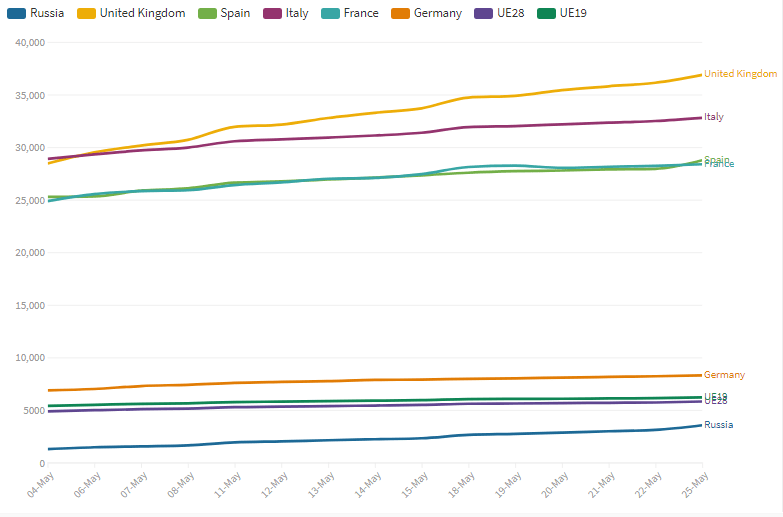>>>Visit here the analysis of COVID-19 evolution in Europe: May-July 2020<<
The European Commission is coordinating a common European response to the coronavirus outbreak. We are taking resolute action to reinforce our public health sectors and mitigate the socio-economic impact in the European Union. We are mobilizing all means at our disposal to help our Member States coordinate their national responses and are providing objective information about the spread of the virus and effective efforts to contain it.
Cases by country
The epidemic is evolving differently in each country. Although many European countries still report a number of positive cases during May, the confinement measures taken by the leaders of Europe have resulted in a much smaller daily increase in cases compared to March and April. As of 25 May 2020, the countries with the highest number of reported cases are Russia (344,481 cases), the United Kingdom (260,216), Spain (235,772), Italy (229,858) and Germany (180,328). However, if we look at the number of inhabitants, the countries with the most infections are Luxembourg (with 637 cases per 100,000 inhabitants), Spain (504), Ireland (498), Belgium (492), and the United Kingdom (384)

The countries with the lowest number of infections to date are Malta (584), Cyprus (935), Latvia (1,047), Slovenia (1,468) and Slovakia (1,509). Again, looking at the number of reported cases per 100,000 inhabitants, the countries least affected by the pandemic to date are Greece (27), Slovakia (27), Bulgaria (34), Hungary (38) and Croatia (54).









Leave a Reply